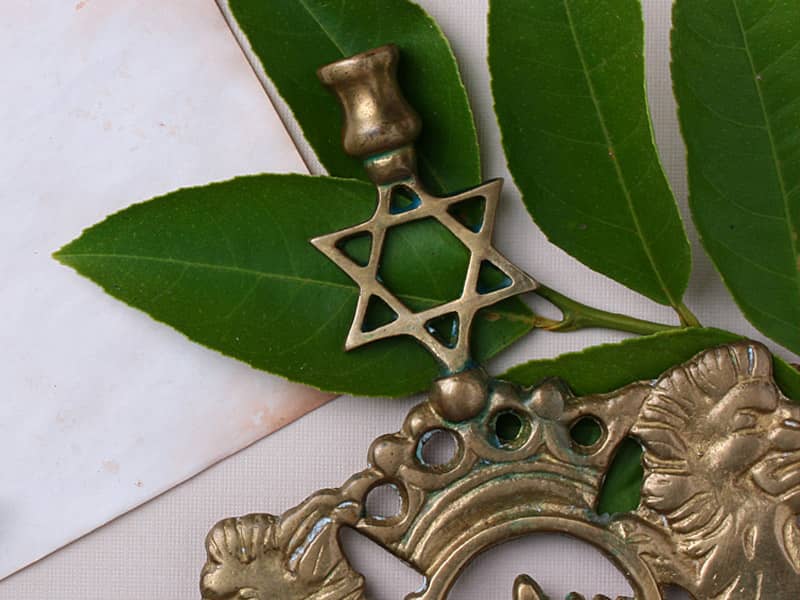 | Reprinted from JewishFamily.com, part of the Jewz.com network. |
Yom Kippur, unlike most Jewish holidays, has few home rituals. It is made for communal worship. There are no festive meals, except the breaking of the fast. There are no silly costumes or upbeat songs. It does, however, provide children an opportunity to see their parents engaged in serious prayer and reflection, which sets an important example.
The Ten Days of Repentance--from Rosh Hashanah to Yom Kippur--is a time that lends itself to serious family discussion. During that time, we face each other and ask for--and grant--forgiveness. This period of time culminates on Yom Kippur with a heightened sense of truly pleading for life. We experience the power of the questions we have been asking for the past ten days: What is the nature of our family relationships? What would we like to change in the way we relate to one another? How can I grow as a person? How can I better live in relationship to God? How can I do my part to bring healing to a broken world? How can I be a better parent and partner?
These questions are important because Judaism teaches that we cannot attain Divine forgiveness until we have seriously sought forgiveness from the wronged party in the community, at work, at home.
There are two ways Jews seek forgiveness: the traditional way and what might be called the "wimpy" way. We can approach the wronged party and say, "I'm sorry for the time I broke your computer and didn't tell you it was me." Or take the easier route and say: "Please forgive me for anything that I may have done intentionally or accidentally, that you may or may not know about." It is the custom in our extended family to take the wimpy path--which, frankly, is hard enough. We reserve the more terrifying route for our immediate family.
Either way, Jewish wisdom holds that because we know we will eventually have to come face to face with those we have wronged, we should look them in the eye and ask for forgiveness. The hope and intention is that in the future we may alter our behavior.
In addition to prayer and fasting (don't let the little ones fast too long), there are three activities you may want to try at home.
1. Writer a letter to yourself. On the day before Yom Kippur, gather the family in the living room, hand out paper and pencils, and have them write a letter to themselves. Choose a topic that is appropriate for the holiday, such as "What I would like to do to be a better, more sensitive person in the coming year."
Have each person write a letter, seal it in a self-addressed envelope, and put a stamp on it with a bit of extra postage (rates are likely to go up next year). Someone should mail the letters just prior to the next Yom Kippur. You and your family members will enjoy receiving these annual letters, which can be used as a measuring stick for the past year. Keep them in a scrapbook, which as your kids grow up, can become a precious record. And it will make a touching wedding gift for them years later.
2. Break the fast. While there are few special foods for Yom Kippur, a meal is certainly a necessity at the beginning and end of the holiday. People often gather in the synagogue or at the home of friends for breaking the fast. Invite to your home a stranger from services, for it might be the only time they have walked into a synagogue. It is traditional to eat challah and cake--which are baked prior to the holiday--but you need not limit yourselves to these. Avoid meat dishes, since they are difficult to digest after fasting.
3. Using Yizkor. Normally during this memorial service to parents who have passed away, the younger generation shuffles outside. If you are going to attend the Yizkor service, take some time prior to Yom Kippur to tell stories and show pictures of your folks to your children. This is a good time to think about what were some of the most important values they taught you that you would like to pass along to your children. Teach these lessons through your stories. Perhaps your children will opt to stand with you during Yizkor this year.
And remember, this is a day for the soul and the spirit. This is the day when you deprive your body in order to experience your physical vulnerability, and, you hope, to rise to a higher spiritual and ethical level. Have a meaningful fast.

